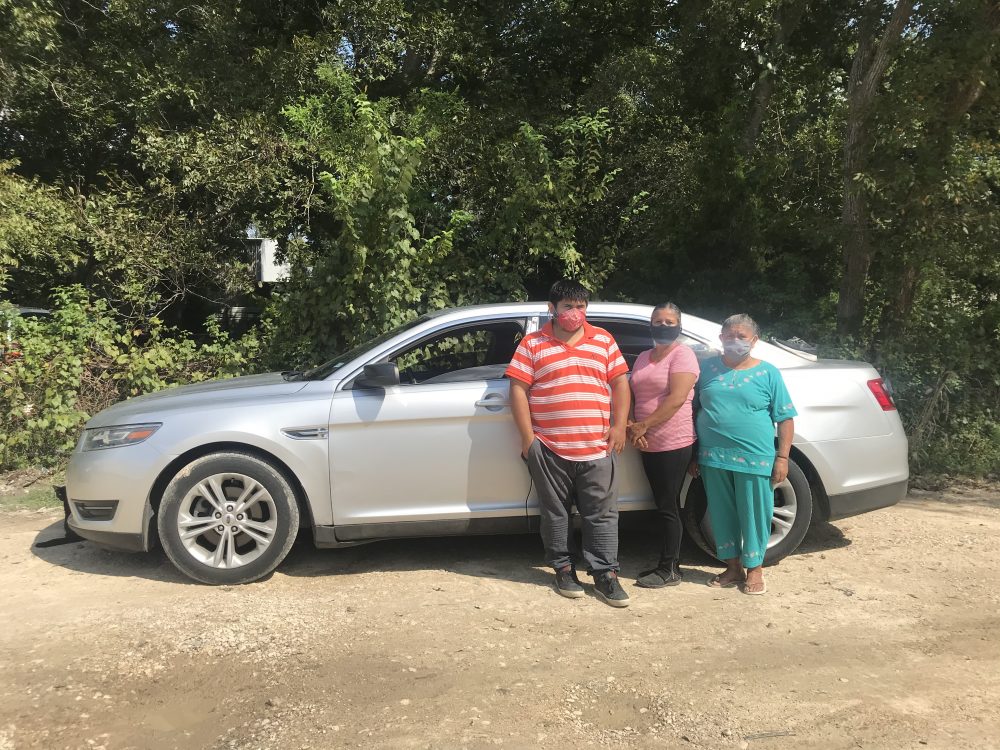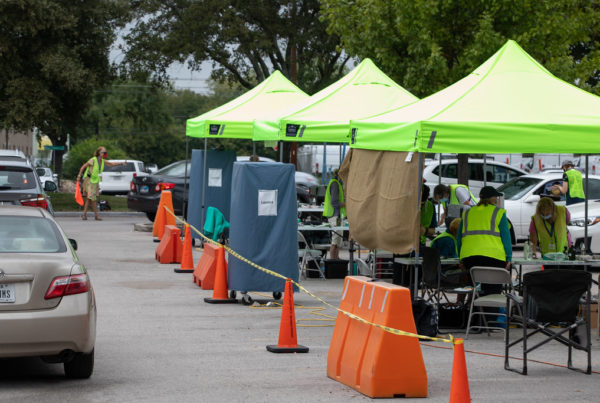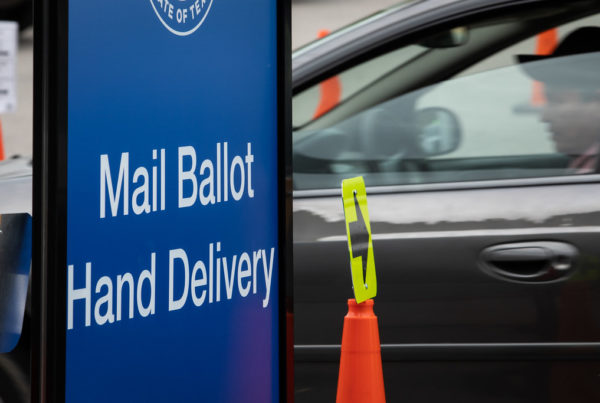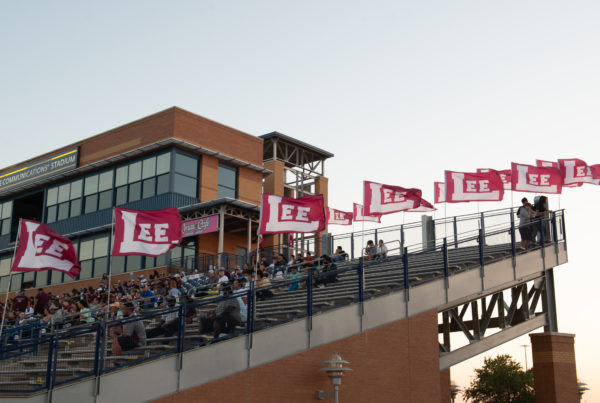This is part one in a two-part series on how and why people are being evicted in Houston, despite a federal moratorium halting the practice. Click here for part two, about how whether or not you’re evicted can depend on what judge you’re in front of.
At a trailer park in North Houston, Cristina Rea has spent almost three months without electricity during the tail end of a sweltering Houston summer. She lives there with her boyfriend and his mom.
In Spanish, Rea said their landlord shut off power when they were a few days late with rent. Though they still had access to the trailer, the family had been spending many summer nights sleeping in their silver car due to the heat. The landlord also cut off the water supply, so they weren’t able to use the restroom or bathe.
Her boyfriend and his mother have lived there more than a decade. She says he should have cut them some slack.
“The third day he just came and cut off everything,” Rea says. “It wasn’t right.”
But even if they could get their electricity and water back on, their trailer has become uninhabitable. The smell of rot escapes through a wedged-open door that Rea’s boyfriend, Juan Miranda, says he can barely open. Inside, the family’s clothes, shoes and microwave are all likely destroyed. Debris lies everywhere. Miranda, whose mom owns the trailer, says flooding and wind from Tropical Storm Beta caused their trailer roof to cave in.
“Everything is knocked out,” he says. “I lost everything from inside.”
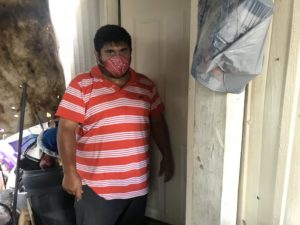
Juan Miranda stands outside his trailer home where his electricity and water were shut off by his landlord.
It’s the latest in a string of poor luck since the pandemic.
The couple has struggled to find work — which is why they were late on rent. Rea hasn’t received any government aid due to her immigration status. And Miranda didn’t qualify for unemployment because he works informal construction jobs.
They don’t know who to turn to for help. And they aren’t alone.
Josephine Lee works with Latino immigrant families through the non-profit El Pueblo Primero. She said she’s talked to many other families who are also going through “self-evictions” — people being informally forced out of their homes.
“All this time the landlord has been pressuring them through different tactics, giving them notices to vacate, putting a padlock on their door,” Lee said. “In response some people have been self-evicting because they don’t want to go to court.”
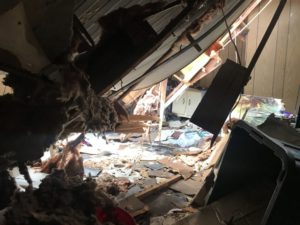
Juan Miranda says flooding from Tropical Storm Beta caused their roof to collapse and their belongings to be destroyed.
Photo: Elizabeth Trovall/Houston Public Media
It’s not just that some families are forced out by their landlords — they’re also losing out on rent relief and other aid because their apartment is under another name, according Rev. Ed Gomez from San Pablo’s Episcopal Church in Southeast Houston.
“They don’t have leases in their names, they don’t have utilities in their names” Gomez said. “It’s all under the person who they get to sign for them. And like that there are probably thousands — it’s the invisible Houston.”
Guadalupe Fernández works in immigration legal aid at the Tahirih Justice Center and serves on the county’s eviction task force. She said she gets frustrated when she sees families like the Mirandas in dire straits — yet often unable to access local, state and federal aid.
“If you are not addressing and targeting the most vulnerable, who are you actually helping?” she said.
Fernández said she’s seen several barriers that prevent people from getting help.
“It’s clear these systems were not designed for folks that are the most vulnerable,” Fernández said. “When you’re doing an application system online, are you ensuring that (it) has mobile capabilities because you understand that your community, the marginalized community, may have a cell phone and that’s how they are going to apply?”
Nonprofits, churches and informal community groups have picked up the slack to meet the stark need for aid — and many funds have been depleted.
Catholic Charities of Houston, for example, has provided more than $1.6 million for mostly rent and utilities since mid-March. They don’t expect the need to let up any time soon.
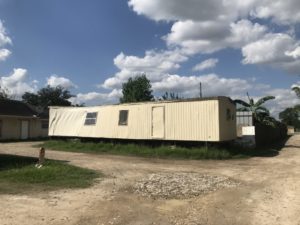
First, Juan Miranda and his family lost power and water in his trailer. After Hurricane Beta, it became completely unlivable. Photo by Elizabeth Trovall/Houston Public Media
For now, the Miranda family is trying to get back on their feet with only the clothes on their backs.
They say it’s been hard finding assistance — they’ve mostly relied on local food banks.
Cristina Rea has two young daughters who are staying with their aunt for now — she hopes she can reunite with them soon.
And she says she’s had trouble sleeping. She stays awake wondering what she’s going to do for work, and where she’ll find the money to eat.
“I’m looking where to work,” Rea says. “If there’s work cleaning houses, I’ll go clean houses. If there’s work in remodeling (houses), I go and I work, because it’s a little bit of money coming my way so I can keep eating.”
“We’re practically left with nothing — everything was lost.”


